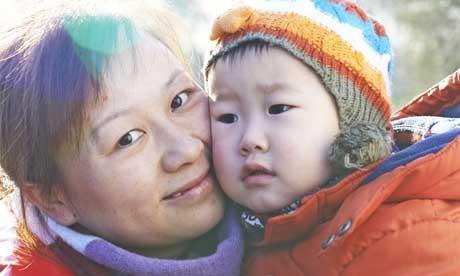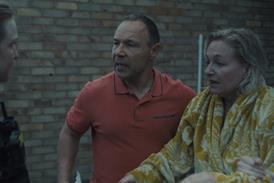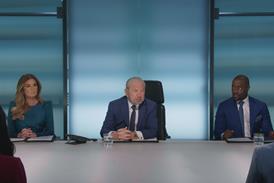“Enough emotional moments, laughs and dramas to hold the interest.” Read on for the verdict on last night’s TV.

Why Don’t You Speak English?, C4
“The idea of this two-part observational documentary was simple and intriguing… If the programme had shown the language-learning process that it promised, it might have been rather good. The problem was that it did no such thing… The revelation that Sifa had spent 15 years in a refugee camp in the Congo was just a gratuituous injection of misery… The plight of new immigrants, both before and after they come to the UK, is well-known. Those stories don’t need to be told yet again, and as a result, this programme just felt like recycled warm air.”
Neil Midgley, The Telegraph
“The real subject here – as suggested by the provocative title (to be uttered, I assumed, in an exasperated manner) – was immigration and assimilation. Like the recent Nick and Margaret: We All Pay Your Benefits, the object was to use individual stories as a way into a hot political issue, here the inability of an estimated one million immigrants to the UK to speak the language of their adopted country… Robin Scott, planting a sapling in memory of Sifah’s parents next to his son’s grave, provided a moving riposte to clenched Little Englanders.”
Gerard Gilbert, The Independent
“What happens when you gather people together without even the benefit of a common language is stress, tension and the odd bit of warmth, all of which makes for good TV. It certainly made good TV here. It was also good to hear a show making the point in a calm fashion that speaking the language is the only way to participate in the life of your host country.”
Matt Baylis, Daily Express
“While few participants made significant progress towards becoming fluent, there were enough emotional moments, laughs and dramas to hold the interest.”
Tom Meltzer, The Guardian
“At last here was a programme that acknowledged some of us have cloth ears for language. I was not convinced, however, that a week’s immersion was going to unclog these fours’… Next week the host families immerse themselves in the immigrants’ homes. A miracle of comprehension will doubtless occur, but it is more likely to be emotional and political than linguistic.”
Andrew Billen, The Times
Imagine: Woody Allen: a Documentary Part 1, BBC1
“I watched it for an insight into why the standard of the director’s movies has declined so alarmingly, but I guess that will have to wait until tonight’s second instalment of Robert B Weide’s profile. What we got instead was a delicious evocation of Allen’s 1940s Brooklyn childhood and a reminder of just how good a stand-up comic he was back in the day.”
Gerard Gilbert, The Independent
“Weide clearly had unprecedented access to Allen but the personal elements were limited. It was amusing to see the way Allen works - still writing on an old typewriter and cutting and stapling sections of dialogue - and his love of jazz, Sidney Bechet in particular, shone through… But when it came to his two failed marriages, Allen offered little more than a few jokey asides… Even if this wasn’t the whole picture, Woody Allen: a Documentary was a splendid reminder of why the man is such a unique wit.”
Martin Chilton, The Telegraph
Rachel Bruno: My Dad and Me, BBC3
“One’s initial fear was that this would be an hour-long toe-curler, with the private being painfully, and unfairly, made public. However, this thankfully wasn’t the case. The programme was presented by Bruno’s daughter Rachel, who proved to be down-to-earth, candid and matter-of-fact… This was a tragic and intimate portrait of a family torn apart by disease. But the way they dealt with it, and the lengths to which their love sustained them, underpinned it with poignant hope.”
Jake Wallis Simons, The Telegraph
“It proved emotional, enlightening and thoughtful about the nature of personality… This acutely personal yet respectful film lay in BBC3’s tradition of sharing the burden borne by an alarming number of our nation’s supposedly feckless youth.”
Andrew Billen, The Times
Hunting the Doorstep Conmen, ITV
“Admittedly, the throbbing music and dramatic voice-overs were hyperbolic. But such, perhaps, are the constraints of the genre. The most important thing was that word of these doorstep con men was spread to the people who are at risk of falling foul of it: the elderly, who next time won’t open the door.”
Jake Wallis Simons, The Telegraph





























No comments yet